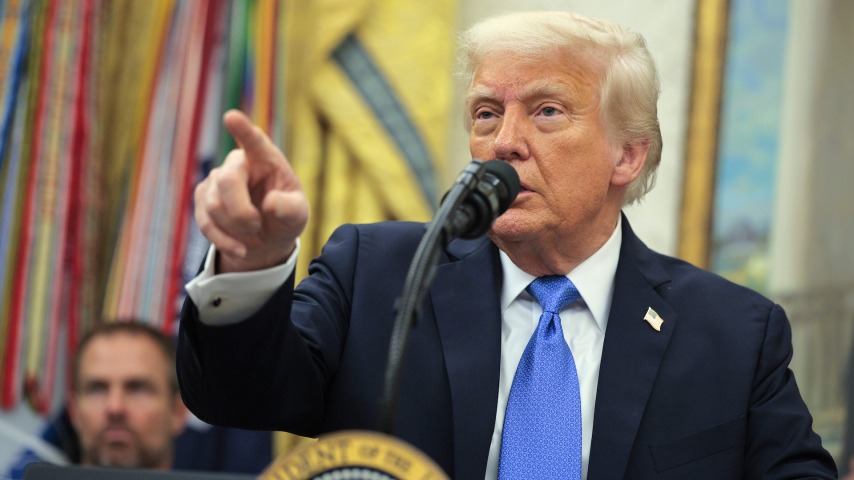Trump threatens political consequences for any Republicans trying to help PBS, NPR
The Senate is expected to vote on a rescissions bill, which would slash $1.1 billion from public media, next week.
Photo: Chip Somodevilla/Getty Images
When news of Paramount’s $16 million settlement with Trump broke last week, industry veterans and other government officials were quick to warn that it would only spur on the president’s crusade against the media. It seems like that’s already happening. In a pretty naked display of The Way Things Work Now, Trump threatened to revoke his endorsement from any Republican who voted against his plan to slash billions in funding from public broadcasters like NPR and PBS in a post on Truth Social Thursday night.
The president specifically wrote that it was “very important that all Republicans adhere to my Recissions Bill [sic] and, in particular, DEFUND THE CORPORATION FOR PUBLIC BROADCASTING (PBS and NPR), which is worse than CNN & MSDNC put together. Any Republican that votes to allow this monstrosity to continue broadcasting will not have my support or Endorsement.”
 Keep scrolling for more great stories.
Keep scrolling for more great stories.
